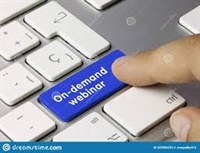Alert Message
Alert Message
Alert Message
- Duration:
- 2 Hours
- Price:
- $0.00 - Base Price
Thu, Aug 08, 2024 - 06:00pm to 08:00pm CDT
- Faculty:
- Alison Feigh | Carrie Clark, DC, CACCP, Acupuncture Certified | Melonie Schoenherr, DC, IBCLC | Chris Major, DC, DACBR, ATC
- Duration:
- 8 Hours 30 Minutes
- Price:
- $99.50 - $199.00
Sat, Oct 12, 2024 - 08:00am to 04:30pm CDT
- Faculty:
- Dr. Darren C. Roemhildt | Mark Charrette
- Duration:
- 9 Hours
- Price:
- $295.00 - $449.00
Fri, Sep 27, 2024 - 08:00am to 05:00pm CDT
Sort by:

On Demand
Total Credits: 1 Regular
- Faculty:
- Dr. Steven Conway, D.C., DACBOH, J.D.
- Duration:
- 1 Hour 2 Minutes
- Format:
- Audio and Video
- Short Description:
- This course will provide how to properly document your Medicare patients
- Price:
- $30.00 - Base Price
Tags: Continuing Education
Please wait ...



